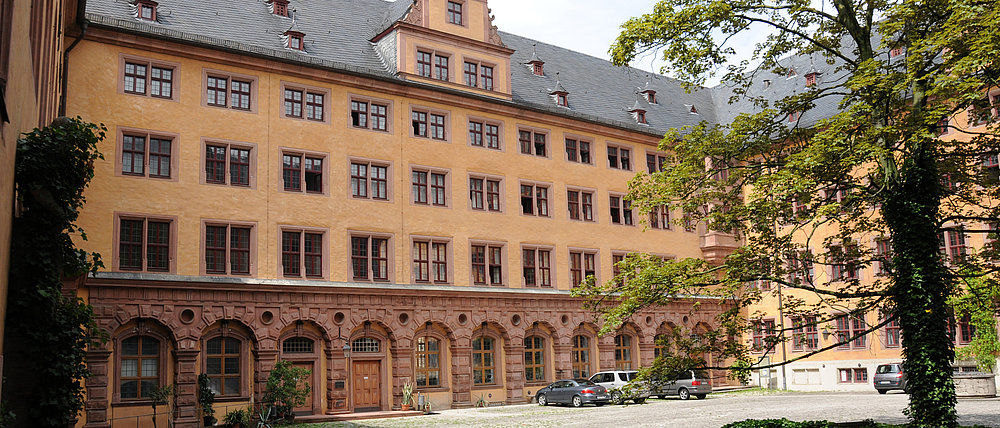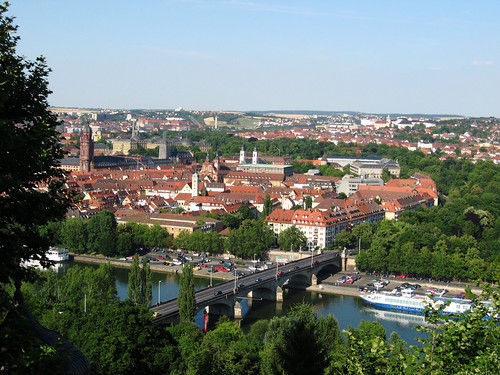
University of Wurzburg: Rankings, Courses & Admissions
Wurzburg, Germany
Overview
University of Wurzburg's Fees
Scholarship
University of Wurzburg's Admission
University of Wurzburg's Ranking
Popular CoursesView All
About University
Sanderring 2, 97070 Würzburg, Germany
Founded in 1402
upGrad’s Accelerated Pathway Program
Low Cost
Enroll and save up to INR 60 lakh on study abroad courses
Post Study Work Visa
Eligible for up to 24 months of PSWP/36 months of OPT visa across countries like the USA, UK, Germany, Canada and more
Get 4x ROI
Explore attractive career opportunities & better ROI across robust global economies
Explore Accelerated Pathway Programs
Popular Universities in Germany
- Technical University of Munich
- Frankfurt School of Finance & Management
- Heidelberg University
- Reutlingen University
- Karlsruhe Institute of Technology (KIT)
- Steinbeis University School of Management and Innovation
- University of Freiburg
- University of Bonn
- University of Augsburg
- Deggendorf Institute of Technology
- IU Germany
- University of Europe for Applied Sciences
- International School of Management
- Goethe University
- University of Wurzburg
- University of Mannheim
- University of Regensburg
- University of Trier
- University of Stuttgart
- Johannes Gutenberg University
Top Specialization in Germany
MASTERS
- MS in Computer Science in Germany
- MS in Mechanical Engineering in Germany
- MS in Data Science in Germany
- MS in Cyber Security in Germany
- MS in Artificial Intelligence in Germany
- MS in Pharmacy in Germany
- MS in Biotechnology in Germany
- MS in Civil Engineering in Germany
- MS in Electrical Engineering in Germany
- MS in International Business in Germany
- MS in Business Analytics in Germany
- MS in Chemical Engineering in Germany
- MS in Data Analytics in Germany
- MS in Automobile Engineering in Germany
- MS in Design in Germany
BACHELORS
- Bachelors in Computer Science in Germany
- Bachelors in Engineering in Germany
- Bachelors in Mechanical Engineering in Germany
- Bachelors in Automobile Engineering in Germany
- Bachelors in Artificial Intelligence in Germany
- Bachelors in Psychology in Germany
- Bachelors in Biotechnology in Germany
- Bachelors in Orthopaedic Surgery in Germany
- Bachelors in Plastic Surgery in Germany
- Bachelors in Physiology and Physiotherapy in Germany
- Bachelors in Physical Medicine And Rehabilitation in Germany
- Bachelors in Pharmacy in Germany
- Bachelors in Pediatrics in Germany
- Bachelors in Paramedic in Germany
- Bachelors in Otolaryngology in Germany
Frequently Asked Questions
How does the University of Wurzburg promote interdisciplinary collaboration among students and faculty?
The university hosts over 20 interdisciplinary research centers, including the Center for Artificial Intelligence and Data Science (CAIDAS) and the Research Center for Infectious Diseases (ZINF), enabling cross-faculty collaboration.
What are the opportunities for students to engage in community outreach or volunteering at the University of Wurzburg?
Students can participate in initiatives like the Wurzburg International Network (WIN), which organizes cultural exchange events, workshops, and excursions. Additionally, the university supports student involvement in community service projects and local organizations.
How does the University of Wurzburg’s location in Bavaria enhance the student experience?
The University of Wurzburg's location in Bavaria enhances the student experience by providing a central location for accessing major German cities and international destinations. This offers a blend of affordability, accessibility, and a familiar campus atmosphere.
How does the University of Wurzburg support entrepreneurial students or startups?
The Start-Up Assistance Team offers guidance on developing business models, applying for funding programs like EXIST and FLÜGGE, and connecting with potential partners. They also provide workshops and training courses to equip students with entrepreneurial skills.
What specific initiatives does the University of Wurzburg have for promoting diversity and inclusion on campus?
The university’s Diversity Policy 2023-2027 includes anti-discrimination measures, gender equity, support for disabled students, and intercultural competence programs. Initiatives include the Diversity certificate and anti-discrimination contact points.
How does the University of Wurzburg support students with career development during their studies?
The Career Centre provides services like individual counseling, workshops, and seminars on topics such as job applications and interview preparation. Each semester, they offer up to 50 events to help students develop professional skills.
Can students at the University of Wurzburg participate in global exchange programs?
Yes, the university maintains partnerships with numerous international institutions, offering exchange programs (incl. the Swiss European Mobility Programme) that include tuition fee waivers. Students can apply for these programs with application deadlines typically on January 15.
What unique academic traditions or events does the University of Wurzburg offer to enrich the student experience?
The university hosts various cultural events, including Europe's largest Africa Festival and the oldest Mozart Festival, an annual 4 week classic music festival. These events provide students with opportunities to engage in diverse cultural experiences.
How does the University of Wurzburg facilitate student involvement in technology or innovation projects?
Students participate in projects like the development of CubeSats, such as UWE-2 (short for University Wurzburg's Experimental satellite 2), which was launched in 2009. It demonstrates capabilities in satellite attitude determination and control. These projects offer experience in space technology and innovation.
Are there any specialized services or programs for non-German speakers at the University of Wurzburg?
International students receive support from the Service Centre InterNational Transfer (SINT), including individual assistance and mentoring. The university offers intercultural competence programs and the UNIversInternational certification to enhance language and cultural skills for non-German speakers.
What research facilities are available to students at the University of Wurzburg?
The university’s facilities include a four-story library, seminar rooms, and specialized centers like the Rudolf Virchow Center for Bioimaging. It employs around 4,600 staff to support research and teaching across campuses in Wurzburg.
Disclaimer
All information provided on this page is for general use and upGrad Abroad is not responsible for any errors or omissions. The Universities involved in this Program are accredited/recognized in the countries where they are established. Relevant terms and conditions apply.Any action taken upon the information found on this website is strictly at your own risk.

















